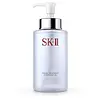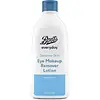What's inside
What's inside
 Key Ingredients
Key Ingredients

 Benefits
Benefits

 Concerns
Concerns

 Ingredients Side-by-side
Ingredients Side-by-side

Paraffinum Liquidum
EmollientIsopropyl Palmitate
EmollientPEG-20 Glyceryl Triisostearate
EmollientWater
Skin ConditioningSorbeth-30 Tetraoleate
EmulsifyingPhenoxyethanol
PreservativePEG-8 Diisostearate
EmulsifyingButylparaben
MaskingEthylparaben
PreservativeGalactomyces Ferment Filtrate
HumectantBHT
AntioxidantPropylparaben
PreservativeSodium Benzoate
MaskingHexyldecanol
EmollientPhenethyl Alcohol
MaskingRosa Canina Fruit Oil
EmollientButylene Glycol
HumectantPyrus Malus Seed Extract
Skin ConditioningGlycerin
HumectantMethylparaben
PreservativeMoringa Oleifera Seed Extract
Skin ConditioningParaffinum Liquidum, Isopropyl Palmitate, PEG-20 Glyceryl Triisostearate, Water, Sorbeth-30 Tetraoleate, Phenoxyethanol, PEG-8 Diisostearate, Butylparaben, Ethylparaben, Galactomyces Ferment Filtrate, BHT, Propylparaben, Sodium Benzoate, Hexyldecanol, Phenethyl Alcohol, Rosa Canina Fruit Oil, Butylene Glycol, Pyrus Malus Seed Extract, Glycerin, Methylparaben, Moringa Oleifera Seed Extract
Ingredients Explained
These ingredients are found in both products.
Ingredients higher up in an ingredient list are typically present in a larger amount.
BHT is a synthetic antioxidant and preservative.
As an antioxidant, it helps your body fight off free-radicals. Free-radicals are molecules that may damage your skin cells.
As a preservative, it is used to stabilize products and prevent them from degrading. Specifically, BHT prevents degradation from oxidation.
The concerns related to BHT come from oral studies; this ingredient is currently allowed for use by both the FDA and EU.
However, it was recently restricted for use in the UK as of April 2024.
Learn more about BHTButylene Glycol (or BG) is used within cosmetic products for a few different reasons:
Overall, Butylene Glycol is a safe and well-rounded ingredient that works well with other ingredients.
Though this ingredient works well with most skin types, some people with sensitive skin may experience a reaction such as allergic rashes, closed comedones, or itchiness.
Learn more about Butylene GlycolEthylparaben is a preservative, is a paraben, and is not reef safe.
Methylparaben is a preservative and is a paraben. It is used to prevent the growth of fungus, mold, and other harmful bacteria. Parabens are chemicals used as preservatives in both cosmetics and food.
Methylparaben can be synthetically created. It can also be found naturally in some fruits, such as blueberries.
Oftentimes, Methylparaben is combined with other parabens to help increase the shelf life.
The safety of Methylparaben is currently being studied. While ongoing studies are looking into the safety of parabens, the results have been very mixed. Some studies have not found Methylparaben to be harmful.
Learn more about MethylparabenParaffinum Liquidum is also known as liquid paraffin. It is a type of highly refined mineral oil.
Like other oils, Paraffinum Liquidum has emollient properties. Emollients help soothe and soften the skin. By creating a barrier to trap moisture within, emollients help keep your skin hydrated.
Paraffinum Liquidum does not irritate the skin and is non-comedogenic.
Learn more about Paraffinum LiquidumPhenoxyethanol is a preservative that has germicide, antimicrobial, and aromatic properties. Studies show that phenoxyethanol can prevent microbial growth. By itself, it has a scent that is similar to that of a rose.
It's often used in formulations along with Caprylyl Glycol to preserve the shelf life of products.
Water. It's the most common cosmetic ingredient of all. You'll usually see it at the top of ingredient lists, meaning that it makes up the largest part of the product.
So why is it so popular? Water most often acts as a solvent - this means that it helps dissolve other ingredients into the formulation.
You'll also recognize water as that liquid we all need to stay alive. If you see this, drink a glass of water. Stay hydrated!
Learn more about Water